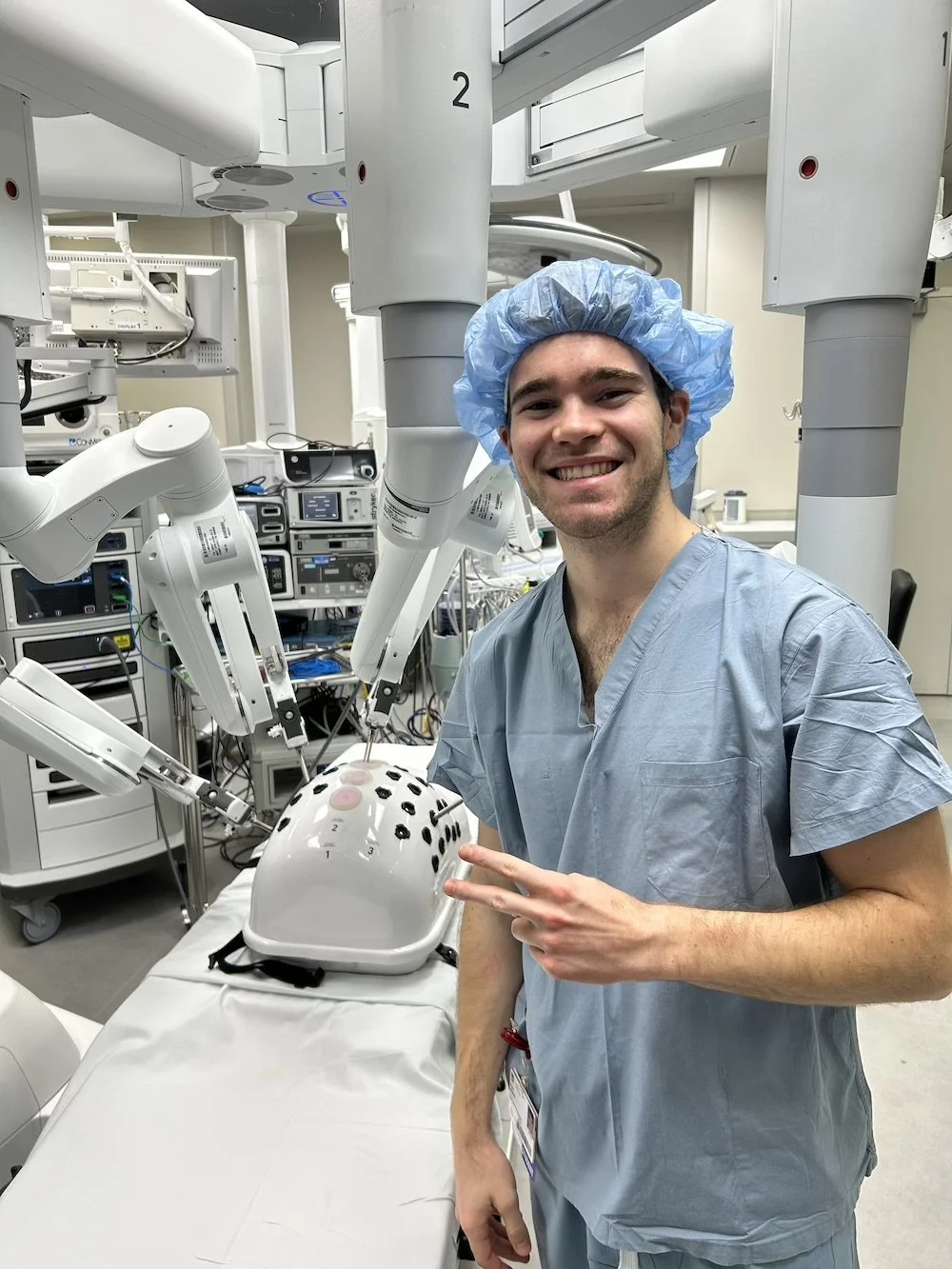Ryan C.
If you’re reading this, you are way more than just a medical student.
A short four months ago, my dreams were as tangible as ever, and my morale was sky-high. I had made it past the largest hurdle! I was going to be a doctor! In the roller coaster of the previous year, filled with self-doubt and covered in a mist of uncertainty, my angst seemed to dissolve in a moment with the arrival of that acceptance email. In my eyes, all of my hard work was now justified, and my self-esteem flourished. This was my greatest achievement.
The first few weeks of classes lived up to the hype, full of meeting new people, learning new things, and riding the high of my accomplishment. However, the honeymoon period ultimately began to fade as school became more demanding. Time management became a struggle, and my performance in the classroom was not where I wanted it to be as a result. I found myself gravitating to various escapes.
After some reflection, I started to realize what was going on. I had forgotten who I was before medical school. Of course, being a medical student is a new and very important component of my persona, but most definitely not all of it or even the most important aspect. I am still the same guy who loves to watch football, go to the gym, hike in the mountains, spend time with family, and go out with friends. Becoming a medical student was never going to change that, yet I had been suppressing those aspects of myself for the past few months to the point that guilt began to surround the pursuit of my hobbies.
Understanding this has helped my mental health in medical school tremendously. Instead of fighting myself, it has been important for me to embrace what makes me happy. Accepting that I am not a machine that can work for 18 hours a day nonstop allowed me to find fulfillment in wellness activities. For me, that has consisted of daily trips to the gym, hanging out with friends on Friday and Saturday nights, watching 30 minutes of a TV show nightly with my roommates, and watching Notre Dame play on Saturdays (Go Irish!). Not every week is conducive to doing all of this, of course, but prioritizing these things has actually helped improve my performance in the classroom and helped me feel more well-rounded. On top of that, it has helped spark intrinsic motivation. When I have quality time with my roommates or the gym to look forward to, I find that I am more motivated and more efficient in my studying. The doom-scrolling, rewatching lectures, and general feeling of wanting to escape my work have all been minimized by embracing the different aspects of my identity.
It is also a testament to the Stritch community that I have found many of my peers hold the same sentiments and are excited about pursuing hobbies outside of the classroom. Medical school is a stressful environment, but you are most definitely not alone. Everyone will have their own journey, but it is important to recognize that we are all human and have to prioritize the things that bring us joy before we can maximize the fulfillment we gain from our careers.
Best,
Ryan C., First Year Medical Student
Several studies have revealed that medical students, physicians, and healthcare professionals experience mental health symptoms at rates significantly higher than the general population. Stethos[Cope] is a chapter of IfYoureReadingThis designed to help medical students and professionals cope with the unique stressors of medical training and change the narrative of mental health in medicine.
To read more letters and interviews from students, and to learn more about mental health in the medical community, visit the Stethos[Cope] home page.

